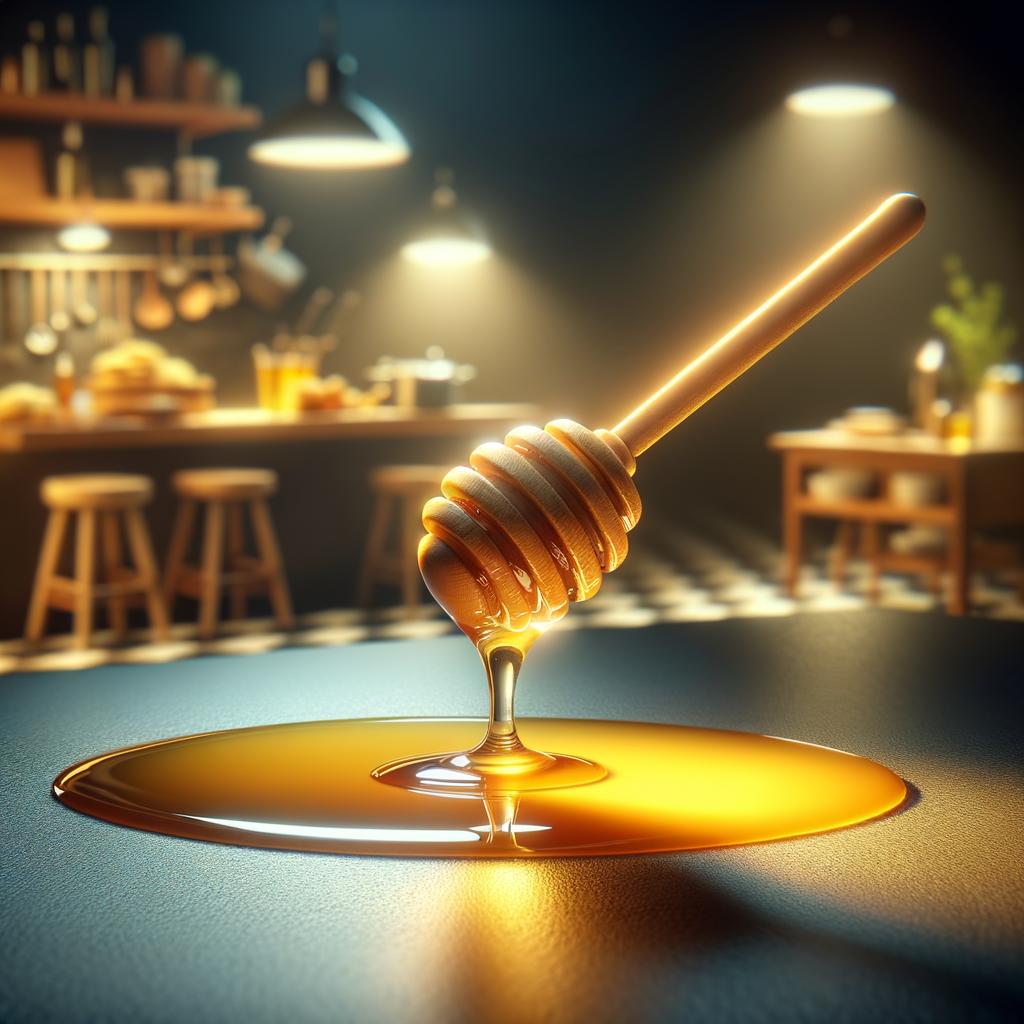Honey

Description
Honey, a golden elixir of nature, is a sweet and viscous substance produced by bees from the nectar of flowers. Its appearance is a shimmering liquid that ranges in color from light amber to rich brown, depending on the flowers from which the nectar is harvested. The texture is thick and sticky, while its flavor is a delightful dance of sweetness, with subtle floral undertones that can hint at clover, lavender, or even eucalyptus. What sets honey apart from other sweeteners is its natural origin and the fact that it's crafted by the tireless work of bees, rendering each jar a testament to nature's wonder.
Primary Uses
Honey plays a prominent role in many culinary traditions around the world. It is used as a natural sweetener in baking, a glaze for meats, and a flavorful addition to sauces and dressings. It's the crowning glory in Greek baklava, a key ingredient in the French spice bread "pain d'épices", and the sweet note in the savory marinades of Korean cuisine. Beyond its culinary uses, honey has been used medicinally throughout history, touted for its antibacterial properties and used in wound healing. Culturally, it symbolizes sweetness and prosperity in many societies, often used in wedding and New Year celebrations.
History
The history of honey is as rich as its flavor. Cave paintings in Spain dating back to 7000BC depict honey harvesting, and it's mentioned in ancient Sumerian and Babylonian texts, the Bible, the Quran, and the Vedas. It was the nectar of the gods in Greek mythology, a symbol of immortality in Egyptian lore, and a sacred healing substance in Ayurvedic medicine. Over time, its use has evolved from a precious food for the elite to a pantry staple, and from a traditional remedy to a subject of modern scientific research.
Nutritional Information
Nutritionally, honey is more than just a sweet treat. It's a natural source of energy, composed primarily of fructose and glucose. It also contains small amounts of vitamins and minerals, including B vitamins, vitamin C, and magnesium. In comparison to refined sugar, honey has a slightly higher nutrient content and a lower glycemic index, meaning it doesn't spike blood sugar levels as quickly. It's also rich in antioxidants, which can help protect the body against cellular damage. However, it's still a form of sugar and should be consumed in moderation. Despite its sweetness, the story of honey is one of balance, reflecting the harmony of nature.

